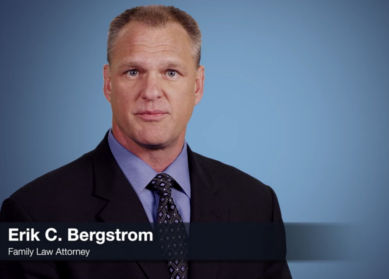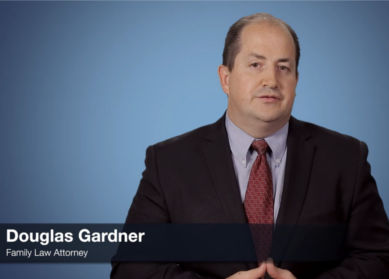About Douglas Gardner
Hello, my name is Douglas Gardner. I’m an attorney with Davis Miles McGuire Gardner in Tempe, Arizona. Prior to going to law school and becoming a lawyer, I worked for several years in the accounting industry. My background is initially in finance. Because of that financial background and the accounting background I’ve been able to help a lot clients with difficult cases involving business, or the sale of houses, and the division of assets and debts. Growing up on a farm, you know maybe working hard on a farm doesn’t directly relate to doing well in court, but the tenacity and the determination and the hard work and the long hours that I developed on the farm is something I carried forward into my law practice. Because the clients that come to me probably are experiencing the worst time of their life, I find it very important to have good communication with my clients. I try to keep them up to date on anything we receive from the court and from the opposing party.
We also work very hard in any case to try to find a way to resolve the case and avoid having to go to trial, if it’s at all possible. Because we try to resolve most cases through agreements early on in the case, I will aggressively represent those clients, but I’ll smile while doing it, because often we can get agreements quicker, faster, and cheaper if we do it in a friendly and courteous fashion.
However, sometimes friendly and courteous doesn’t work and we have to be much more aggressive as we prepare for trial and we will aggressively pursue your case to make sure that you get a fair outcome and that the judge fully understands the factors that support your case. Well, sometimes I say that I’m the “Jiminy Cricket” up on their shoulder whispering the voice of reason to them and clients then can take the emotions that they’re feeling, and the decisions that want to emotionally make, but also combine that with what I’m telling them as far as the financial decision, and the legal decision, and the logical decision they need to make. I’ve been asked by people that work for judges to come in and represent them in divorce cases and that was a tremendous compliment, because they are able to be in the courtroom and see many many attorneys and they called me to represent them in the case. I was recently was called by an opposing counsel in a prior divorce case because that person now was going through divorce case and was looking for me to help represent them in the case.
Davis Miles McGuire Gardner
So if you’re looking for an aggressive attorney to represent you through a difficult divorce, or a complex family law case of any kind, give us a call at (480) 733-6800, or you can visit us online. I look forward to meeting with you and discussing the strategy of your case that we can use to bring your case to an appropriate settlement, or if necessary to bring your case through litigation and trial.
By: Attorney Douglas Gardner











